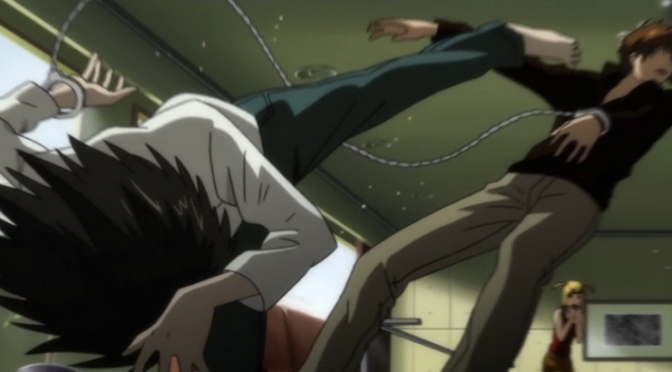The upcoming Netflix-created Death Note film has been whitewashed so thoroughly, Tom Sawyer must have told Netflix how to do it.
I thought about posting another author rant about this one, (another meaning, pursuant to the Ghost in the Shell fiasco) but then figured…this might be better. Who knows, maybe someone can actually answer all these questions – because that’s what this is, a list of questions. I asked four of Netflix on twitter…but then I realized I actually had bunches more. Then I realized bunches was too many, so I settled on seven.
These aren’t questions I think Netflix’s new Death Note movie will be able to answer by being watched, these are questions I ask about why the movie was made the way it has been made, and why Netflix, with a relatively good reputation for diversity, would…well, screw up badly.
So, without further ado, the original four, and plenty more:
1. Death Note, reset in Oregon? So um… Shinigami, being Japanese death gods, won’t be in it, right? The cultural context and explicitly Japanese nature of the shinigami means that while the story of Death Note allows them to travel anywhere in the human world, their origin is still Japanese.
2. Why can’t Light Yagami be Light YAGAMI…and be an American? I know plenty of Japanese Americans; changing his (highly symbolic) name is irrelevant to his ability to be American, and Seattle, Oregon, the new ‘setting’ of this film, has a large Japanese American community.
3. How can Netflix claim to be concerned for the moral relevance of Death Note’s story, while simultaneously disregarding the moral relevance, especially in today’s struggling society, of racism? The choice to make the lead a white actor instead of a Japanese actor implies that a Japanese American…isn’t an American.
4. Please explain why the only main character in the new film played by a Japanese actor…is Watari, the “butler” or “servant” character? There is no reason Watari could not be played by a Japanese actor, because his Western ancestry is vague in the source material, (and unimportant, compared to, say, the symbolism of Yagami, or the origin of shinigami) but in context…let’s be frank, this just looks bad.
5. As a follow-up, why is Quillsh Wammy worthy of being played by a Japanese actor, and of keeping his Japanese code-name of Watari, while the lead’s last name must change from Yagami to Turner?
5. I notice in the trailer that “Kira” is still spray-painted on a wall, prominently. However, in Death Note, “Kira” is the name the Japanese public ascribes to the unknown heart-attack murderer, “Kira” being a Japanization of the English word “Killer”. As with question 1, please explain how this makes sense if the story has been moved to Oregon?
6. The position of Misa Amane’s character as a Japanese model and “Idol” is important to the plot in significant ways. American celebrities are observed by society in a very different way, and would not be useful in the same manner. Why has the most important female character in the series been reduced by removing her Japanese identity?
7. A major plot point in Death Note comes from the poor relationship between Japan…and America, in the form of conflict between the Japanese Task Force and the FBI. Having reset the film in Oregon, how can this dynamic possibly be preserved? The difference between state/federal law enforcement, for instance, does not approach anywhere near the level of international interference.
Bonus Question: Did no one in Netflix or Hollywood learn the lesson of Dragonball: Evolution, whereby it was shown that adapting anime by using white actors and tiny portions of Japanese mythology produces…a horrible flaming pile of donkey crap?


I’m still interested to see what it ends up looking like. Certainly it could end up being just like Dragonball and make you wonder why anyone bothered. But possibly they actually took an idea nad thought about how to write a decent story around it so even with all the problems it might still be halfway entertaining (okay, I’m optimistic because Netflix hasn’t burned me too much yet).
LikeLike
That’s ultimately my fear – and considering the horrifying failure of the just-released Ghost in the Shell adaptation, my hopes have now fallen even further.
LikeLiked by 1 person